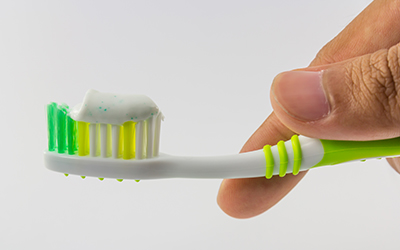Posted on Sep 23, 2024
File ID 33354758 | © Krichie | Dreamstime.com

When you consume fluoridated water or use dental products containing fluoride, it’s absorbed into your bloodstream through your digestive system. Specifically, your stomach and small intestine take in the fluoride, especially when it's in liquid form, like water. From there, fluoride travels to your teeth and bones to do its job of demineralizing enamel and keeping your teeth strong.
If you're ever curious about your fluoride intake or any dental health concerns, feel free to reach out to our Lake Charles dentist at Duhon Family Dentistry. We're always here to help with any questions you may have.
Fluoride needs to be in the right concentration to be both safe and effective. According to the Centers for Disease Control and Prevention (CDC), a fluoride concentration of 0.7 parts per million (ppm) in drinking water is optimal. This level has been shown to reduce tooth decay by up to 25% in both children and adults.
Too much fluoride can lead to dental fluorosis (those white spots on teeth), but for the most part, the fluoride in your water and dental products is perfectly safe. When you visit our Lake Charles dental office, we can answer any specific questions you have about fluoride exposure and what’s best for you.
Most people in the U.S. are exposed to safe levels of fluoride daily, whether it's through their water supply, toothpaste, or mouthwash. If you have any concerns about overexposure, your Lake Charles dentist can help ease your worries.
Remember, fluoride at the proper levels helps protect your teeth, keeping them strong and resistant to decay. For more specific dental concerns, such as restorative treatments or even an affordable denture in Lake Charles, our team at Duhon Family Dentistry is happy to provide personalized care.
In most cases, fluoride is safe and beneficial for maintaining healthy teeth. It's absorbed through water, food, and dental products, all at generally safe levels for daily use. Visit our Lake Charles dental office if you have any concerns or want to discuss your dental health.